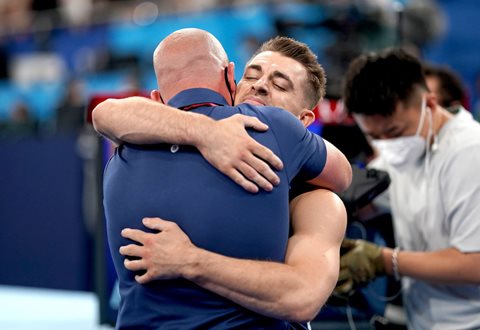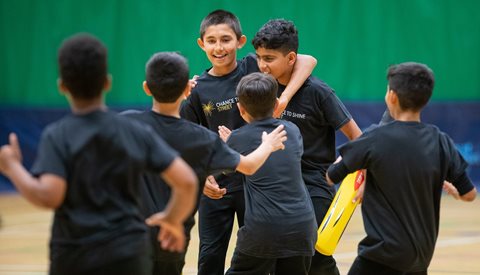Our cookies
We use essential cookies to make our website work smoothly for you. To make sure we're always improving, we'd like to use analytics to track how people use the site. We won't set non-essential cookies unless you give us permission. You can find more information about all the cookies we use in our Privacy and Cookie Policy.
Some cookies are a must for our website to function properly. If you turn off essential cookies, it may affect how you experience our site.
The non-essential cookies we use help us understand how you use our website and make improvements to enhance your experience.
Planning Sessions that Support Children’s Holistic Development
As a coach, you want to help your children develop not only as performers, but also as people. You want to help them acquire skills and qualities that they can take into other areas of life. You want to help them grow holistically. In this feature, Chance to Shine’s Schools Programmes Manager Ian Gregory shares some fun interactive games that will help you embed essential life skills in the young people you coach.
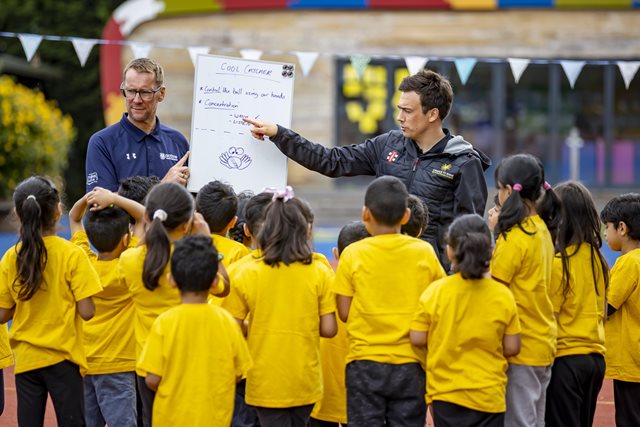
by Blake Richardson
Children are naturally curious, imaginative, and playful. They learn best when they are having fun, exploring their interests, and expressing themselves freely. To quote child-first aficionado and Play Their Way champion Richard Cheetham: “Play is the foundation of learning, creativity, self-expression and problem-solving”.
Play is not just a random activity. It is a powerful tool that can be used to enhance children’s long-term development and well-being.
But play is not enough by itself. To unlock its full potential, children need a coach who can guide them, challenge them, and support them. A coach who can act as a question master and facilitator, who can help children reflect on their experiences, discover new possibilities, and help them apply their learning to different situations. A coach committed to developing the whole child who knows the value of creating a safe, positive, and stimulating environment where children can experiment, collaborate, and have fun.
A coach who takes this holistic approach to children’s development will be helping their participants:
- develop physical, mental, social, and emotional skills that will benefit them in sport and in life.
- appreciate the value of physical activity and sport.
- be inspired to be active, healthy, and happy over their entire life, not just at a stage in their life.
A pretty impressive roll call of benefits, I’m sure you’ll agree.
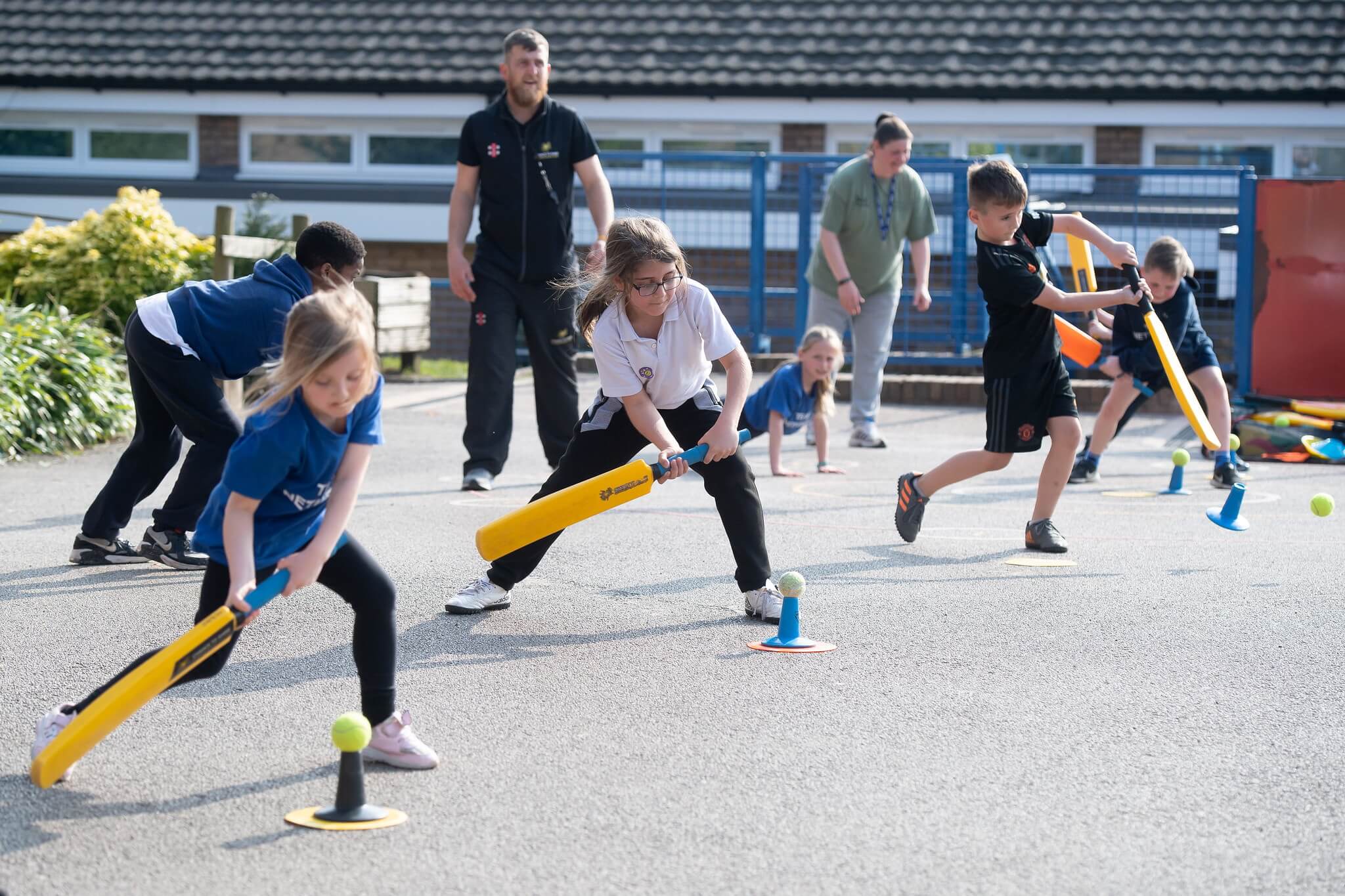
The Play Their Way campaign is based on three pillars: Voice, Choice, and Journey. The last pillar reflects the idea of holistic development and the power of child-first coaching to help children grow as individuals and performers.
Underneath are some creative game ideas from Chance to Shine’s Ian Gregory (learn all about the Chance to Shine charity in our video case study) that teach transferable skills for life, including:
- communication and leadership skills
- self-confidence and self-esteem
- resilience and the ability to cope with pressure
- teamwork and collaboration
- problem-solving and decision-making.
Games that help to embed life skills
Before going into the specifics of how our coaches practically support the development of holistic skills, it’s handy for me to provide a background of why we believe this approach is vital to our programme(s).
We have a very ambitious mission: to ‘give every child the opportunity to play, learn and develop through cricket’. We recognise that to ‘learn and develop’ must take into account the specific needs and motivations of all children and therefore, if we took a purely physical and sport skills approach to development, we would be underserving most of the children we reach. Our impact is therefore measured against four pillars, which closely align to developing physical literacy. These pillars are: physical well-being, social well-being, mental well-being and personal development.
If this is our mission, then we must ensure that our programme is designed with specific intent to bring this to life. We have recognised that we are not necessarily the experts here, and over the evolution of our Schools programmes, we have worked alongside partners who have supported our coaches through a robust CPD programme to help them understand both the philosophy and the practicalities of delivering this when there are 30 children in a primary school class stood in front of you. Credit here to both Create Development (‘COGs based approach’) and the Youth Sport Trust (the four ‘ME’s’), who have elevated our work.
How do we do this?
- Our programme emphasis is to support every child to become a ‘Confident Cricketer’.
- Our physical skills approach uses a team of ‘cricket characters’, e.g. ‘Super Striker’ and ‘Ferocious Fielder’ to ensure that a range of fundamental skills are developed, but in a way that is unique to each child.
- We ensure that there is a specific ‘Life Skill’ attached to each session, e.g. resilience, collaboration, and empathy, and that our coaches are supported in framing this learning through objectives, examples and reflections.
- We attach the Life Skill to activities and games that allow the skill to appear more readily (e.g. collaboration would be connected to games where the children work in pairs/small groups, so they can bring the skill to life).
We’re conscious that the above may initially reduce the important aspects of ‘voice’ and ‘choice’ but through effective questioning during sessions, this can come to life. It’s also important to note that when working across Key Stage 1 through to Key Stage 2, we may need to provide a stimulus on choice for the youngest children, who may not know what choices they can make, yet.
Game idea: Skilful Scorer – Caterpillar Cricket
This game is specifically taken from our Key Stage 1 ‘Skilful Scorer’ session, with the importance being that the Key Stage 1 curriculum itself generally has a fundamental movement focus, with some cooperative activities and very basic skill development that is appropriate for the age group. This activity requires the children to be in small teams and is a fun and relatively simple game. A big part of the game involves both teams (fielding and batting) to make appropriate calls on either passing the ball between them to get back to a bowler or to make a call on when to run, with all teammates following in a chain.
Life skill focus: Teamwork: ‘To play cooperatively with others’.
Reflective questions:
- How can you and your partner(s) work as a team to be fast and safe?
- How can you support each other whether batting, running or fielding?
- How might creating a team name help your team to be more motivated?
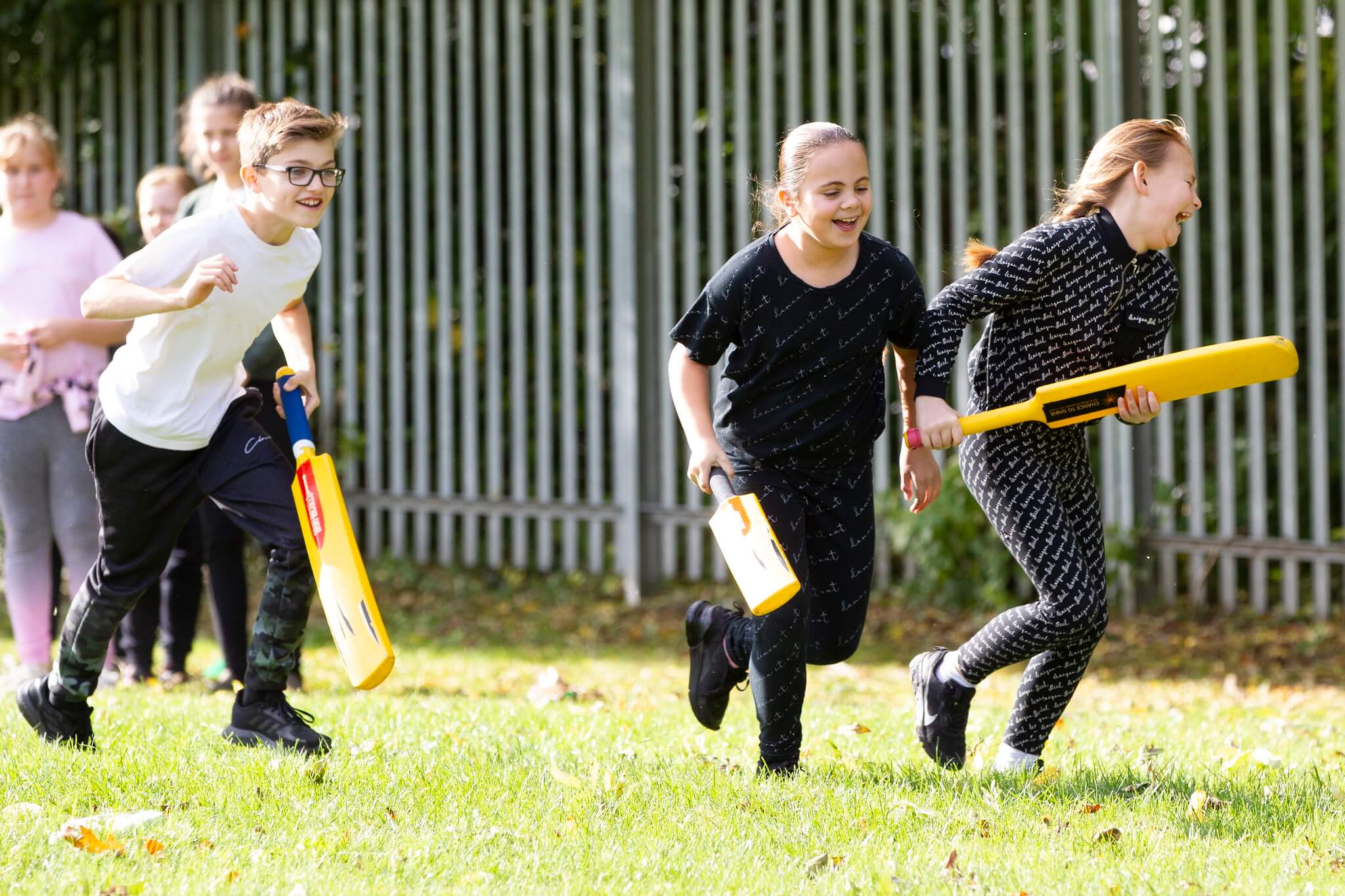
Game idea: Brilliant Bowler – Bowl-a-Goal
Bowling within cricket is (arguably) a complex skill to learn for most, and the technique is unique. Therefore, connecting the physical skill to the life skill of ‘confidence’ was a natural fit, as we want the children to explore how they became more confident without worrying about the outcome.
As a simple ‘piggy in the middle’ style activity, Bowl-a-goal gives the children plenty of chance to aim a ball between a large target, with the added fun element of someone aiming to stop the ball in the middle of that target.
Life skill focus: Confidence: ‘To recognise that working hard to achieve something makes you feel good’.
Reflective questions for the children:
- How did you feel your confidence change after a few goes?
- How did you support others to develop their confidence?
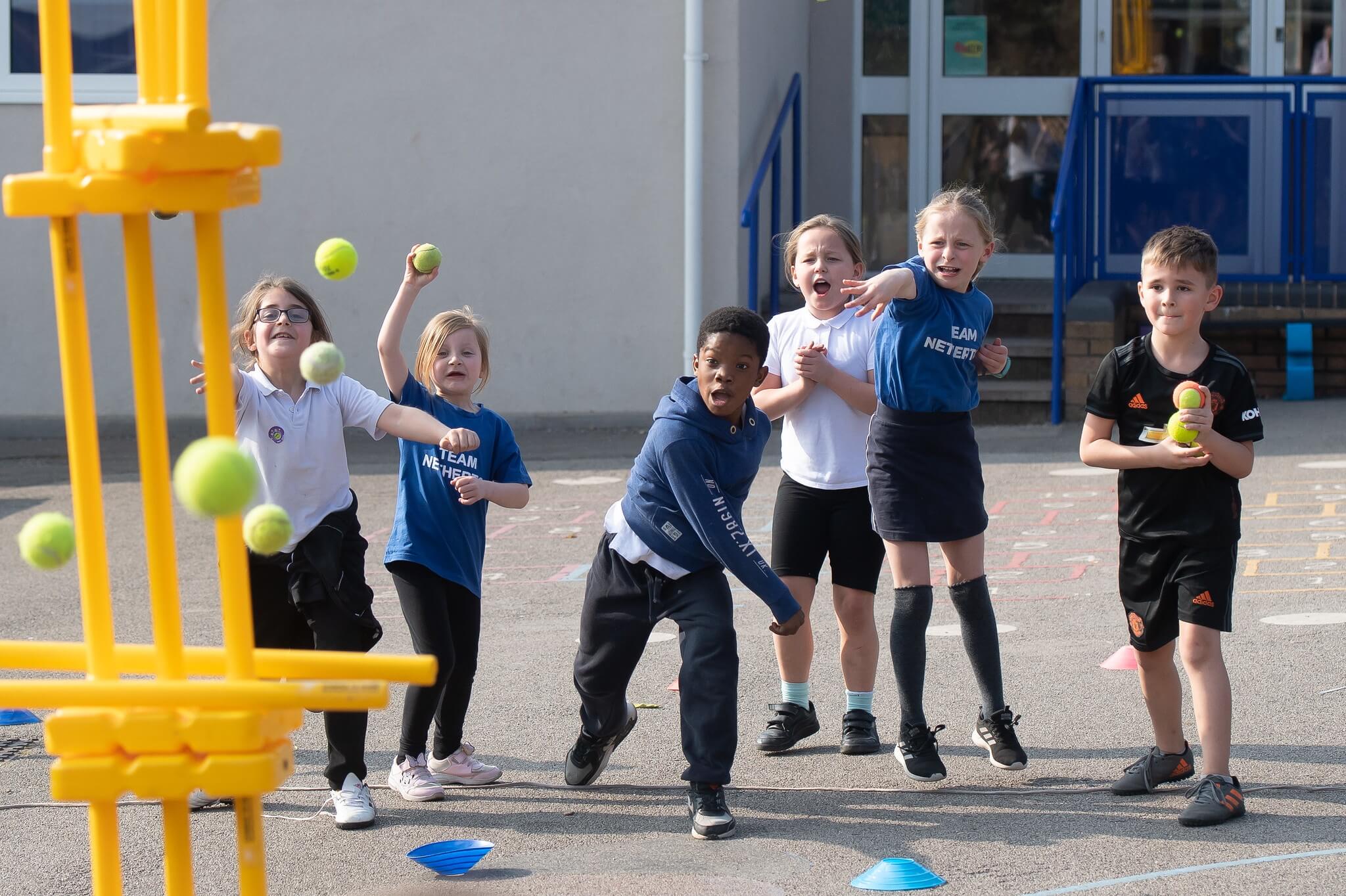
Game idea: Super Striker – Bat Taps (Star Challenge)
This game builds on from the earlier part of the session where the children were practising the skill for the first time, with the added element of challenge in terms of time and score.
The reflections on performance, however, don’t involve checking with the children on ‘how many’ but more so ‘how did it feel when the ball fell to the ground’ or ‘what did you do to bounce back?’. Those who feel ready (perhaps due to strong levels of personal success) are encouraged to try ways in which they find it harder, not to increase the chance of some level of ‘failure’ but to allow them to reflect on how they felt.
Life skill focus: Resilience: ‘To bounce back when things go wrong’.
Reflective questions for the children:
- How does support help you to keep going and not give up?
- What can you do to support others?
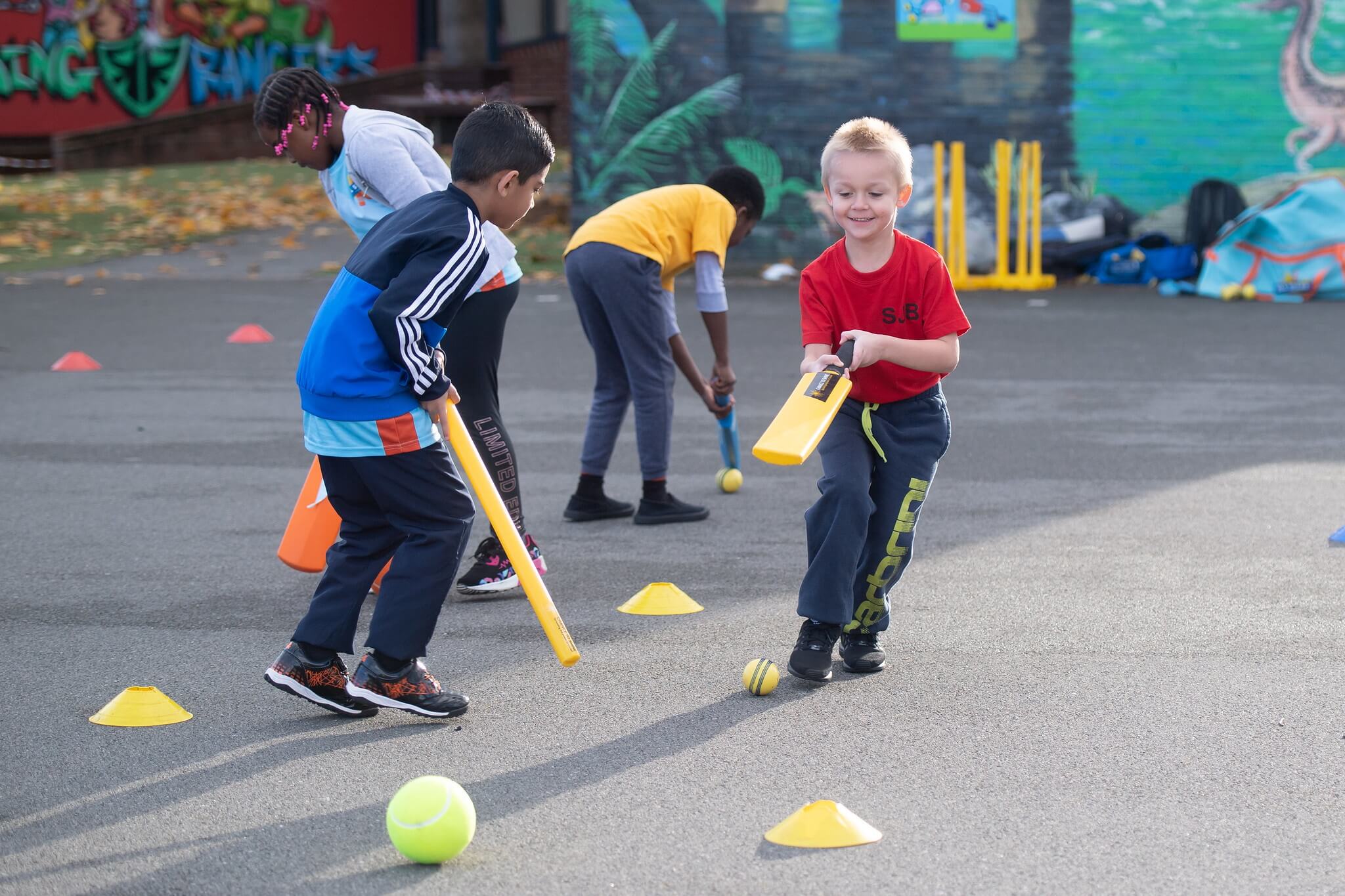
Game idea: Skilful Scorer – Run them Out (Whole-Part-Whole)
Our Lower Key Stage 2 lesson plan for ‘Skilful Scorer’ focuses on a Team 1 vs Team 2 activity, whereby a whole-part-whole approach is taken. The children get the opportunity to play, assess their performance with teammates and then design their own practice to then put skills they have practised into the next round of the game.
The activity has a physical focus of running between the wickets and stopping and returning a ball. However, the activities are framed around the skill of ‘collaboration’.
Life skill focus: Collaboration: ‘To recognise the importance of taking the views of others into account’.
Reflective questions:
Whilst some reflection on physical performance will be done, the coach would prioritise reflection on how groups collaborated to design a practice and then supported each other to apply the skills.
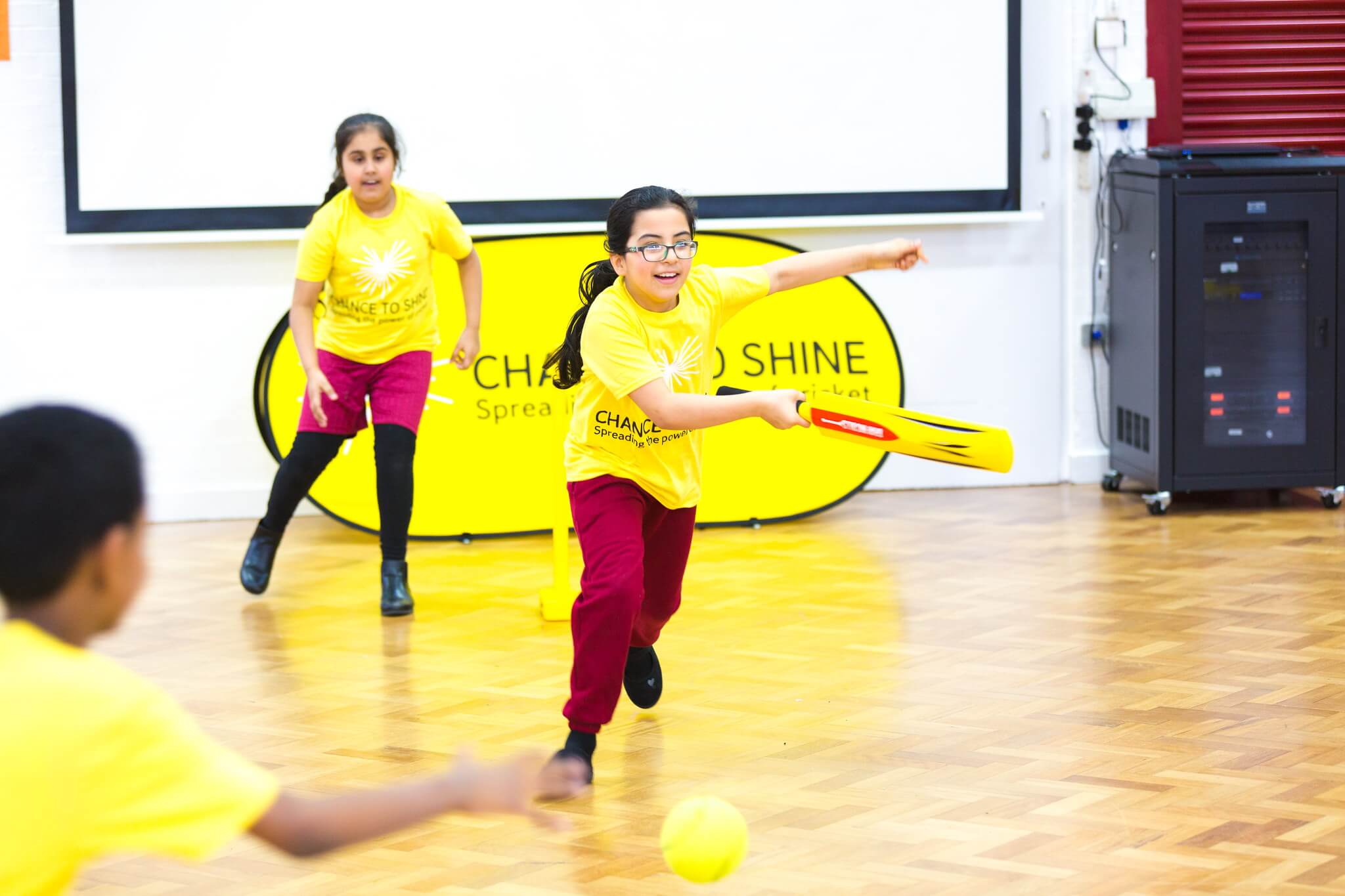
Game idea: Super Striker – Deep Space Batting
This is an activity that includes Team 1 vs Team 2, with it being batters vs fielders. The scores are based on the number of runs the batting side can make before the fielders return all the equipment to its starting point.
The nature of the game Deep Space Batting requires each side to consider how they can reduce time (fielders) or increase time (batters) to impact on the number of runs scored. Therefore, it provides a direct opportunity to discuss and come up with improvement of solutions. The coach/teacher’s role is therefore to facilitate these chats but allow the children to explore their own options and agree on an approach.
Life Skill focus: Collaboration: ‘To recognise and apply strategies and tactics when playing cricket’.
Reflective questions:
- What decisions does the ‘Super Striker’ have to make when taking part in these activities?
- How does the ‘Super Striker’ change technique to find the gap?
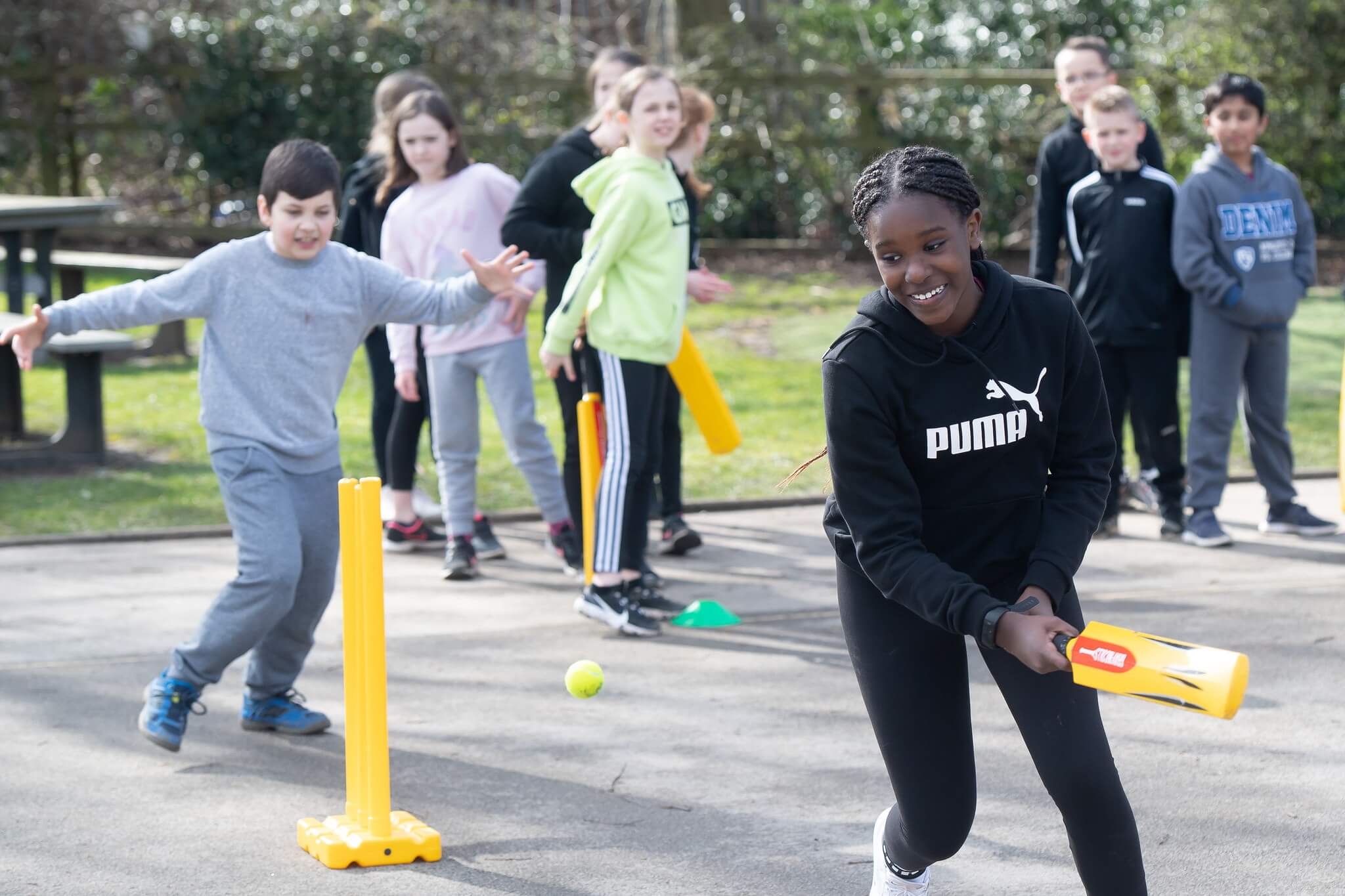
Now it’s over to you
Have fun implementing – and even more fun adapting – these games that:
- put the child at the heart of the action.
- respect children and young people’s individuality.
- empower them to learn through play.
- enable children to shape their own experience through co-creation.
And have fun exploring new game ideas with the children you coach that help them make new friends, have positive experiences and enhance their motivation to participate in physical activity and sport.
You hold the key to developing these transferable skills that can be applied to other areas of life besides sport. This is what we mean by holistic development. And we hope this guide has shown you how to achieve it.
Other resources you may like...
SHARE THE MOVEMENT
Help spread the word by sharing this website with fellow coaches!


